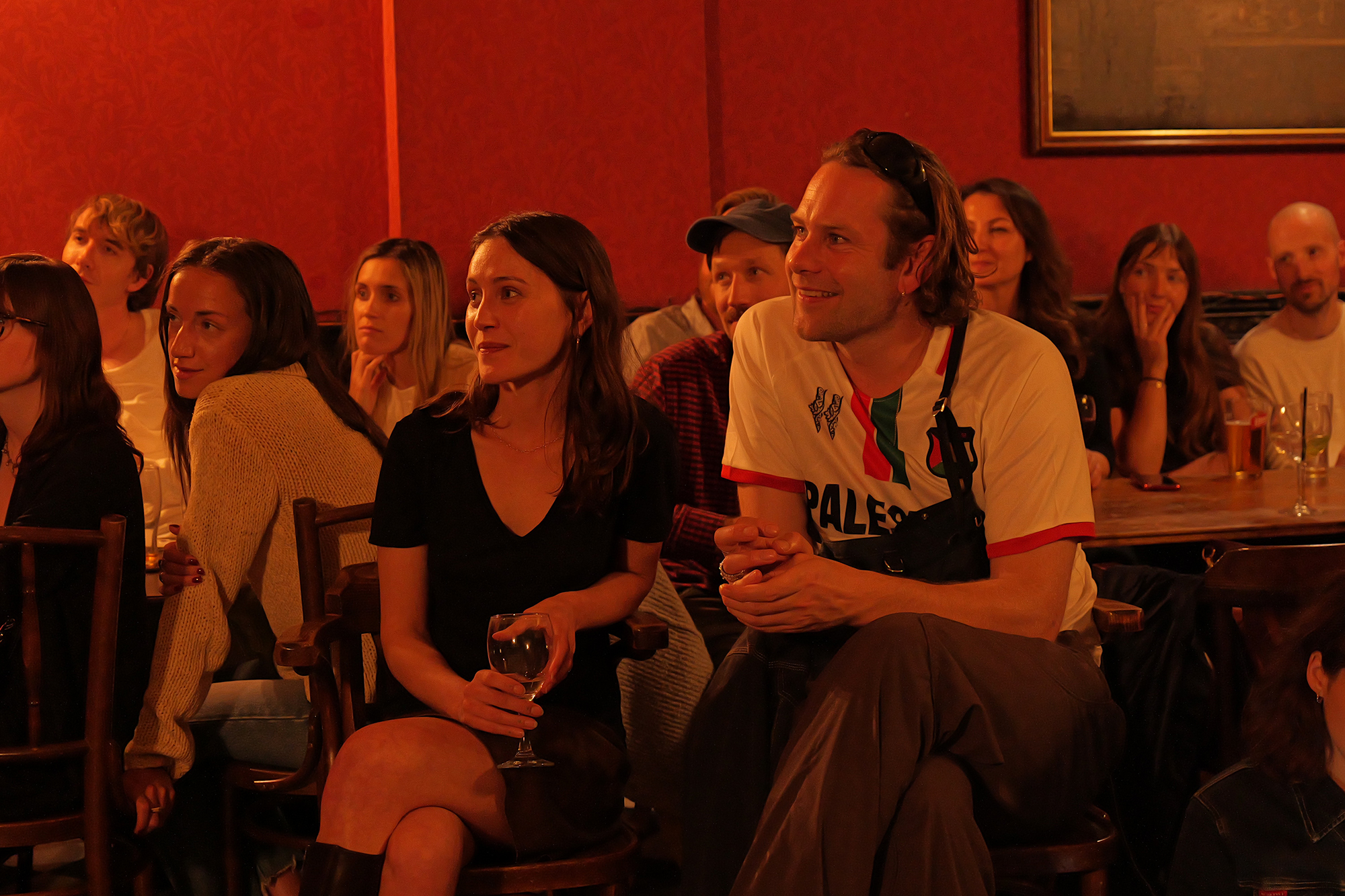They’re a hotbed of networking and flirting, but in an age of increasing digital fatigue, they also offer a space for experimentation and unmediated human connection
The last Soho Reading Series event I attended happened not in Soho but at a church in Notting Hill, in west London. Rather than the handful of souls who normally fill the pews of your average literary reading, this holy place was packed out with over a hundred people – young and artfully dressed (like they had found their clothes in a bin) – until all the seats were taken and the wine that had been served from a trestle table at the back ran out.
It is the brainchild of Tom Willis, who is working on his own novel, and featured names you’d likely find bylined in The Fence or food blog Vittles and other such ventures bucking the general depression underlying the attempt to ply a media trade. It is one of many such grassroots lit events: Paul Johnathan’s Deleted Scenes, one of the originators of the trend; New Work Readings, hosted by novelist and critic Rachel Connolly and The Sugar Factory’s founder Isis O’Regan; the New Papers zine launches; writer and poet Ed Luker’s Rivets Reads. The louche coolness of appearances belies a supportive and welcoming scene. Everyone’s ambitions seem in progress, not yet solidified and warily protected.
The readings were of mixed quality – but with ten writers at the pulpit and much of their work in progress, this is hardly unexpected. A fair bit of autofiction, read from the notes app of the authors’ phones, on inadvisable relationships, grotty-sounding sex in bad flat-shares and angst amid the economic precarity of big-city life; but Dean Kissick gave a tight vignette of his almost certainly one-sided bond with a man who had come to clean out a moth infestation at his childhood home (the house was up for sale, as his recently disabled mother had moved into somewhere more practical). It was melancholic and humorous, a prayer to getting older, to responsibility and inadequacy (perhaps my highlight, because, like Kissick, I was older than most of the others reading). Critic Leo Robson brought out a finely humorous extract from his forthcoming book The Boys, an acerbic paean to London, the central character working during the last gasp of a career in academia at an unremarkable university; Hannah Regel, the best performer, read some pithy poems with deft nonchalance, each packed with a sense of corporeality: the feel of tight fashion on her body, semen swallowed. What was remarkable to me was that so many people turned out to support this kind of thing; a hunger, it seemed, for hanging out that bucked the doomy post-COVID cost-of-living trend in avoiding leaving the house. Yet with tickets only a fiver, it makes sense in a country in which home entertainment is mind-bogglingly cheap compared to socialising (and the clubs have all closed anyway). There is a sense of digital fatigue preeminent in the subject matter, too – Kissick’s yearning for a connection with his moth hunter, Robson’s portrait of metropolitan alienation, Regel’s physicality – a desire for unmediated encounters.
Such success has not gone unnoticed. Last year Miuccia Prada, the fashion doyenne and former communist mime-artist, never not on trend, started her own annual all-female version in the form of the Miu Miu Literary Club. Its second edition took place in Milan in April. Its denizens were more expensively dressed and the books canonical: Fumiko Enchi and Simone de Beauvoir studied by a panel including writer Lauren Elkin and novelist Geetanjali Shree. The London gallerist Sadie Coles, despite her blue-chip status, has established a monthly group, Gargle, at her London headquarters, inaugurated with readings from the likes of artist Rene Matić and writer Charlie Fox. Attempting to recreate the fission vibe of the more organic ventures in this white-cube setting, there’s also a ‘sexy books exchange’ (books about sex, I’m guessing).
There are snipes that evenings such as this indulge in incestuous self-mythologising – perhaps it’s all the baggy corduroy – and they do take their cue from the hipsters who descended on New York’s Dimes Square (a scene in which Kissick himself was key, before moving back to London to care for his mother). When I asked a friend in legacy publishing if they might like to go, they asked if it wasn’t all a bit alt-right, as per the reputation of Dimes Square: though if I went to Soho Reading Series expecting AI enthusiasts wearing Palantir merch, I would have been disappointed. What brought this audience? It wasn’t politics, but perhaps the reasons are political. Scanning the crowd, it strikes me that many of those in the audience would have gone through university in the last five years, the promiscuity and fun of student life postponed under successive lockdowns; their debt-laden degrees primarily conducted online or as hybrid courses. They would have entered a job market online, too, with none of the socialising that is normally requisite to a creative-adjacent career; Big Tech is eroding the future of such industries anyway. The readings have the quality of a university crit session followed by a night in the student union, activated for some of those who lost out the most five years ago. At least here, for a night, reason to be cheerful.
From the May 2025 issue of ArtReview – get your copy.
This story was amended on 7 May. A previous iteration described Rachel Connolly as a ‘journalist and critic’.
